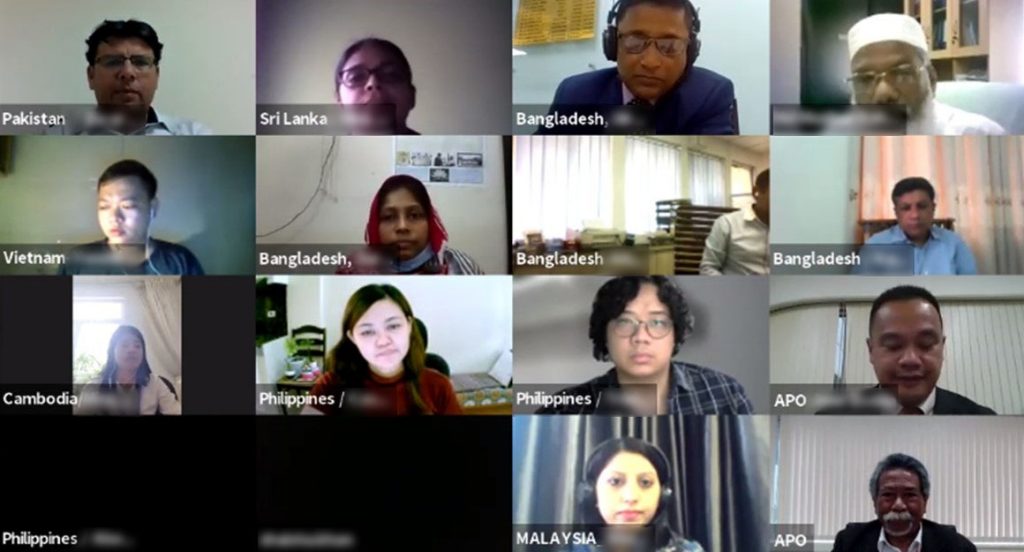
Select Page

Continuing advances in digital technologies are making them more affordable and thus more practical for cost-conscious government agencies. The ongoing COVID-19 pandemic has made it urgent for public-sector organizations to meet both traditional and new demands of citizens in smarter, more efficient ways. The National Productivity Organisation (NPO) of Bangladesh in cooperation with the APO Secretariat held the virtual Conference on Successful Models of Smart Public Service Delivery on 28 October 2020. It examined current best practices of utilizing enabling technologies cost-effectively and how they have contributed to improved, more interactive transactions between the public sector and those served as well as how those practices are likely to evolve.
NPO Head and Alternate Director for Bangladesh Nishchinta Kumer Podder welcomed the 57 participants representing 12 APO members to the conference, followed by a message broadcast by APO Secretary-General Dr. AKP Mochtan. Four international resource persons from India, the ROK, New Zealand, and the Philippines along with one from Bangladesh gave presentations and engaged in a panel discussion that included a Q&A session. Topics covered were the digital transformation of public-sector operations, the changing definition of smart public service, and how new public service models affect productivity and competitiveness. The recent Digital Bangladesh initiative was explained with detailed examples of digital service mapping and linkages to the UN Sustainable Development Goals.
“I was particularly impressed with the range of digital interventions and tools used in Bangladesh,” commented resource person Dr. Huong Thanh Thi Nguyen, Senior Advisor for Strategic Planning and Performance of the New Zealand Treasury. She also appreciated the “thought-provoking questions about organizational/national cultures, fair access, and methods to ensure and measure digital success” posed by participants. Project Officer Rea L. Geraldino, Council of Fellows, Development Academy of the Philippines, who attended as a participant, called the conversion of a planned face-to-face conference to the virtual mode a “remarkable” example of “connectivity among stakeholders across the globe, knowledge, information, and innovation” and congratulated the organizers.
Resource person Prof. Erniel B. Barrios, University of the Philippines Diliman School of Statistics, commented that, “The conference served as an opportunity to share knowledge and experience in the Philippines in measuring quality of frontline government services and introduce some innovative data sources in the face of big data.” He noted, “Asian countries can benefit from alternative data sources for a more timely and less costly input in monitoring the quality of delivery of services. It would have been interesting to know how participants could have planned to implement these innovations in their respective countries had this conference been conducted face-to-face.”